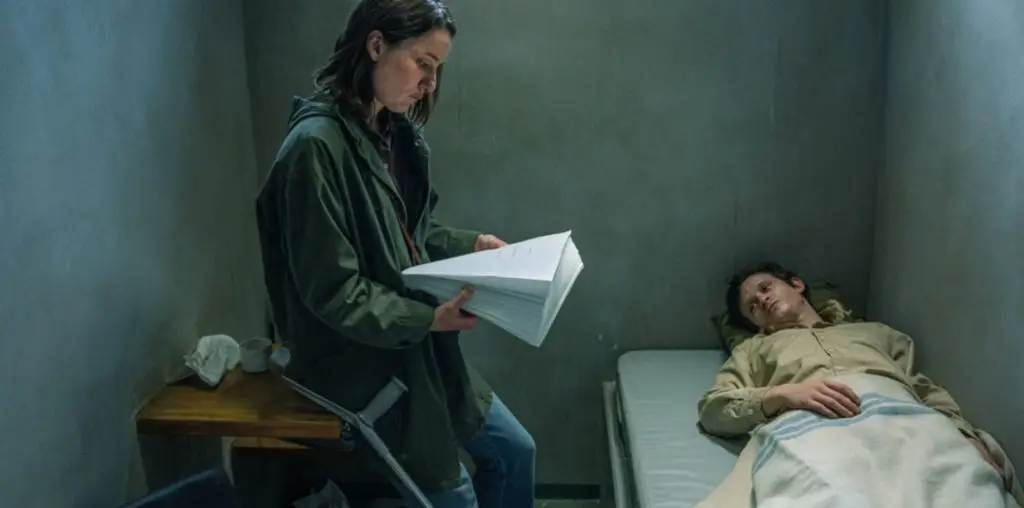
In the popular imagination, Spain conjures thoughts of warm weather, exquisite food, and great painters. And sure, it has all of those, but the country’s political history has been anything but aesthetically pleasing. In the twentieth century, Spain suffered through a civil war, the Franco Dictatorship, a Catalan independence movement, and a Basque Euskadi Ta Askatasuna (ETA) independence movement. It’s precisely the latter that is the focus of director Icíar Bollaín’s Maixabel. The ETA separatist group carried out killings and bombings that took the lives of over 800 individuals in the name of Basque independence. Based on true events, the drama focuses on the lives of a handful of ETA members and their victims.
The film, written by Bollaín and Isa Campo, begins with frantic scenes of a plan carried through to its violent conclusion by ETA foot soldiers. They walk up to a civil governor and shoot him point-blank in the middle of a crowded restaurant. The civil governor is Juan María Jaúregui, a key figure of the more mainstream Basque movement to establish a dialogue between the region and the greater Spanish government. ETA’s goal is clear: derailment of any reconciliation with Spain by way of violence. Jaúregui’s wife, Maixabel Lasa (Blanca Portillo), gets that phone call we all have played out in our minds and hope to never get — her husband has been shot. When she arrives at the hospital, he is already dead. Maixabel and her daughter, María (María Cerezuela), are crushed.
The ETA squad responsible for the killing is imprisoned, but Maixabel is not the same. She no longer has “complete joys in life,” as time does not heal all wounds. Government officials, in a further effort to bring about reconciliation, devise a program that brings the family of victims face-to-face with ETA foot soldiers who have expressed regrets about their membership and the use of violence. The domestic terrorists are asked to listen to victims and not use these interviews as a platform for political finger-pointing or victim-blaming. Maixabel signs up to meet with two of the individuals who made up the squad that killed her husband. The meeting with Luis (Urko Olazabal) is tense, while her conversation with Ibon (Luis Tosar) is even more so. But Maixabel finds revelations in both encounters.

“Maixabel signs up to meet with two of the individuals who made up the squad that killed her husband.”
Maixabel excels when delving into grand themes. The movie clearly displays the arbitrariness and absurdity of violence. The ETA members tell Maixabel that they had no personal hatred toward her husband. They were simply following orders. Luis and Ibon also reveal to her that a coin toss decided who pulled the trigger for assassinations in their squad. Themes of responsibility, victimhood, and closure are dealt with the complexity they deserve.
It must be said, however, that the narrative is not as compelling as one would wish it to be. There is a certain flatness in the mood. It is unclear if this is by design so as to not sensationalize matters or due to an actual flaw in the storytelling. Also, I have the advantage of having family members living in Spain who remember ETA’s violent campaign and who have supplemented my knowledge of Spanish history. Those with little knowledge of Spanish history or politics may find themselves a bit confused during patches of the film wherein little background is given. This can be a frustrating experience for anyone watching a movie that tells what is ultimately a political history via personal stories.
ETA renounced violence in 2011. Once again, one is left to wonder if all the bloodshed was worth it for a cause that ultimately ended in a declaration of peace. No one would dare say that peace, whether declared too soon or too late, is ever not welcomed. One cannot help but consider whether it is worth ever initiating violence in the first place. Maixabel argues that it is certainly not.
Maixabel screened at the 2022 Miami International Film Festival.

"…excels when delving into grand themes."


